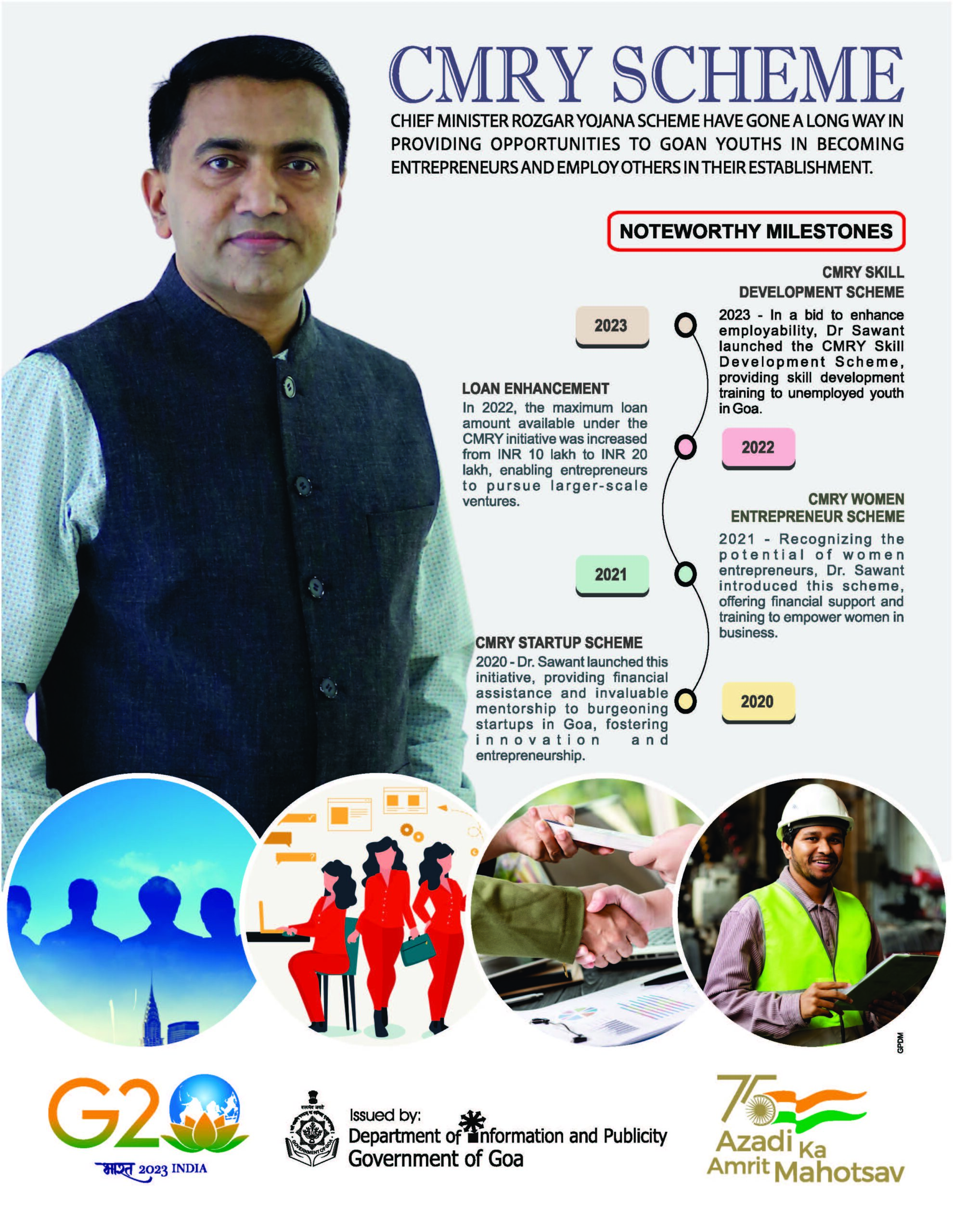Don’t you think the above saying exactly refers to the situation the world is dealing with for the past two years? The answer will be; it is. The pandemic has not just changed the way to live life but also has changed many other aspects which most of the time remain behind the curtains.
The hard times have brought families together and many times have torn apart the same. These situations undeniably have affected physicality but more than that have left their imprints on mental health too. It is easy to identify the body temperature but many times people fail to diagnose the mental temperament of an individual.
These problems have trapped all of us somewhere be it COVID negatives, COVID suspected or COVID positives, and recovered people. No age group is left untouched. And the core reason people need to understand the cause to cure it at the earliest possible.
We all have noticed the tough times turning out to be tougher for the ones who lost their piece of bread to the pandemic. This pandemic related to worry and stress caused such people to experience at least one adverse effect on their mental health and well-being such as difficulty in sleeping and eating, increase in alcohol consumption or substance use, and worsening chronic conditions.
Closure of schools and transition to virtual online classes- leading to changes in the daily routines of children and loss of a sense of structure and stimulation provided by that environment. Children get less opportunity to be with their friends and interact.
Also, the reason children experience worry, anxiety and fear and may find the changes that have taken place difficult to understand.
Constant exposure to technology has resulted in younger and older children showcase irritability and anger for no reason. It is observed children making more demands, in turn, causing undue pressure on some parents and caregivers.
The workers serving from the forefront even fall to this ailment as they are generally required to work outside of their home and may be unable to practice social distancing and hence are at an increased risk of contracting the virus and exposing other members of their household and thus report symptoms of anxiety or depressive disorder starting or increasing substance use or considering suicide.
There are various issues that young adults of the generation face at the moment and their outcomes are terrifying.
Closure of Universities, transitioning to work from home, loss of income or employment, and supporting their family members most of the time lead to horrendous outcomes like sleep disruptions, heightened anger and memory loss, anxiety and depression, and thoughts of suicide at worst.
People with comorbidities are considered being at higher risk since it makes them vulnerable to contracting a severe form of the infection leading to the infection leading to fear and anxiety, thus affecting their ability to cope with the situation.
Looking at the differently abled population, they need extra care because of their disability as they often require the assistance of others, and as a result of which they are at higher risk of contracting the infection.
The elderly diaspora is exposed to higher risk due to their pre-existing problems especially lack of proper nutrition and vulnerability to develop dementia and depression. Social distancing, isolation, and enforced lockdowns have increased the risk of anxiety and depression in such people. This happens as their only social contacts are outside their homes such as daycares and friends and many may not have their spouse or children living with them.

Problems reported in COVID suspected individuals:
1. Health-related anxiety – most commonly seen during isolation, due to fear of turning positive. In severe cases, it can lead to panic attacks.
2. Depression – being away from family and not being able to perform duties, responsibilities, etc. can cause depression and suicidal behavior.
3. Insomnia, low mood, emotional exhaustion – these may not amount to a diagnosable mental health disorder but they need to be identified and addressed.
4. Substance withdrawal – this can occur due to non-availability and sudden stoppage from the substance especially alcohol.
5. Delay in testing – leads to more people contracting the infection and causing distress among the suspected and their family members.
6. Acute stress reaction and post-traumatic stress disorder (PSTD) – people exposed to hospital quarantines have a higher risk of development of PSTD later.
7. End-of-life crisis – fear of death, apprehension towards the family’s reaction to one’s death may haunt the person.
Mental health issues in COVID positives and recovered
- The separation from loved ones, loss of freedom, boredom, uncertainty added on to an illness they’re physically battling can cause a deterioration in an Individual’s mental health status.
- On top of this, one struggles with a shortage of resources right from beds in the hospital, medicines to oxygen cylinders.
- Another major stressor during this period will be the direct and indirect socio-economic impact of COVID-19.
- Recovery from COVID-19 for some patients has led to a slew of MH issues ranging from sleeplessness to anxiety and panic attacks.
- People experience emotional disturbances, insomnia, depression, and post-traumatic stress disorder symptoms right after the quarantine period.
- In patients who required hospitalization following COVID-19, delirium is common during the acute stage of illness.
- The long-term impact is considerable and wide-ranging including anxiety, anger, depression, PSTD, substance abuse, and behavioral changes such as avoiding crowded places and cautious hand washing.
Stigma against health care personnel and survivors of the COVID-19 infection has resulted in harassment, stereotyping, discrimination, and in some instances, physical violence. This only exacerbated the declining mental health of these individuals causing fear, sadness, worry, numbness, or frustration, etc.
Post-COVID Syndrome:
The most common symptoms that can linger include:
- Fatigue
- Difficulty in breathing
- Joint pain
- Chest pain
- Brain fog, including an inability to concentrate and impaired memory
- Loss of taste and/or smell
- Sleep issues
Who is more prone to it?
Experts say “post-COVID syndrome can be seen in people who went to the Emergency Room (ER) with concerning symptoms or who had advanced symptoms that required a brief hospital stay, but it can also occur in people who had mild symptoms and self-treated at home”.
Those who seem to be most at risk of developing post-COVID syndrome include:
Adults over the age of 50
People who experienced a more severe case
Individuals with underlying health conditions, particularly cardiopulmonary issues, hypertension, diabetes, or obesity.
How can we cope?
Through numerous ways, we can regain our natural behaviour.
8. Recognize that your anxiety is completely normal and will help you in practicing precautions.
9. Stay informed but don’t obsessively check the news: Rely on trustworthy sources and limit how often you check for updates as constant monitoring can be harmful. Take a break from social media if you are overwhelmed and ask someone reliable to share important updates.
10. Maintain routine, social connections: Have a balanced work-life regime. A good way to boost your self-esteem is to engage in productive hobbies like writing, reading, etc. Stay connected to your loved ones online.
11. Plan for what you can.
12. Write down specific worries you have about how coronavirus may disrupt your life.
13. Make a list of all the possible solutions you can think of.
14. Focus on concrete things you can change.
15. After evaluating options, draw a plan of action and set it aside. Resist the urge to go back to it until you need it.
16. Challenge negative thoughts
Recognize and adopt a different approach towards negative thoughts. For example, think about what you would tell a friend or coworker who is thinking the same things.
17. If in isolation
Maintain hygiene and take precautions so as not to expose anyone else. Connect with family and friends via calls or video chat. Move about your room, if possible, for at least 5 minutes, 3 times a day. Express your concerns about your health to a trusted family member or your consulting doctor.
Well-known Neuroscientist Earl Miller quotes “People can’t multitask very well and when people say they can, they’re deluding themselves as the brain is very good at it.”
Take breaks and avoid multitasking
Studies show that when our brain is constantly switching gears to bounce back and forth between complex tasks – which require our active attention – we become less efficient and more likely to make a mistake.
Taking a short break allows your prefrontal cortex a brief respite, refreshing you for the next task hence keeping you focused and motivated.
Taking care of a family member
- Create a care plan: In consultation with your physician, jot down a schedule and regularly monitor the vitals, diet, medications, etc. of the sick.
- Be vigilant, contact a doctor if you develop any symptoms
- If you need to attend to a hospitalized person, divide the stay between other family members and contact a nurse to update you as well.
- Support children by encouraging questions and helping them understand the situation by clearing doubts etc.
- Talk and validate their emotions, keep checking on them as often as possible.
- Engage them in creative activities like enrolling for online summer camps etc.
Open up to Yog and Spirituality:
“Yoga happens beyond the mat. Anything you do with attention to how you feel is doing yoga.”

Experts advise Yoga as a powerful weapon against various ailments as it helps to connect the mind with the soul. Various poses and meditation help to control body organs and thus divert the mind from negative thoughts. It helps purify the body from within making it a good center to focus on.
While on the other hand, “The spiritual journey is the unlearning of fear and the acceptance of love.” as quoted by Marianne Williamson.

Spirituality is the quality of being concerned with the human spirit or soul as opposed to material or physical things. It involves recognition of a feeling or sense or belief that there is something greater than myself, something more to being human than sensory experience. It becomes vital to live a spiritual life as many of the behaviors associated with wellness are the key components of a healthy spiritual life.
Resources
Numerous websites run for the same.
1. Hopequre
India’s first and the only certified mental health company for its security that has HIPAA certification for catering to global mental health clients from India. Their rates are the cheapest for counseling and they offer over 750+ certified experts.
2. Better help
World’s largest e-counseling platform.
3. Tick talk to
Top-notch online counseling portal. Their website is very catchy and attractive. They provide EAP services for corporations.
4. Trijog
An online counseling platform with the most aesthetic and welcoming feel.
Numerous Instagram sources also serve people to cope up.
5. Mindfulness exercises
6. Meditation and mindfulness
7. Youth for mental health
8. The mind garden
Numerous books for mental wellness.
9. “Get out of your way” by Dave Hollis.
10. “When things fall apart” by Pema Chodron.
11. “Anxiety: Overcome it and live without fear” by Sonali Gupta.
12. “The Unspeakable mind” by Dr. Shaili Jain (MD).
13. “Didn’t see that coming” by Rachel Hollis.
14. “Happiness Project” by Gretchen Rubin.
Numerous courses to understand mental health better (Coursera)
15. Mind control-managing your mental health during COVID-19 by University of Toronto.
16. Psychological first aid by Johns Hopkins University.
17. Positive psychiatry and mental health by University of Sydney.
18. The Science of well-being by Yale University.
19. Positive psychology by the University of California.
Numerous helplines work for the same
20. AASRA – (982)0466726
21. Sneha Foundation – (914)424640050
22. Sumaitri – (011)23389090
23. Roshni – (+914)066202000
24. Arpita Foundation- (+91)8792677346/(+91)8023656667
25. Nimhans – 4611-0007
26. Kiran – 1800-599-0019
It becomes extremely vital to look into the mental well-being as “What mental health needs are more sunlight, more candor, more unashamed conversation.” ~ Glenn Close.
[author title=”Shreya Gohel” image=”http://localhost/gc2/wp-content/uploads/2021/01/20210127_014031.jpg”]Journalist, Goa Chronicle Connect to me on Twitter[/author]Read my other articles
[feed url=”https://goachronicle.com/author/shreya-gohel/feed” number=”5″]
DISCLAIMER: This article reflects author’s view point. Goa Chronicle may or may not subscribe to views of the author





